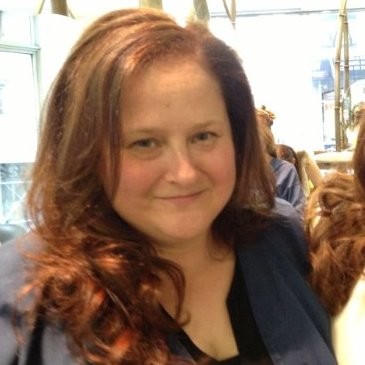
What if there were someone who could go on all your first dates for you? What if all that profile-skimming, right-swiping, text-flirting—all the time-consuming markers of online dating you already complain about—were nixed? Instead of constantly assessing matches, you'd say to your phone, "Siri, find me true love." And she would.
You'll soon be able to, according to Dr. Pedro Domingos, computer science professor at the University of Washington and author of The Master Algorithm: How the Quest for the Ultimate Learning Machine Will Remake Our World. The new frontier of online dating is moving away from the profile-centric model, he says, to an avatar that will essentially date on your behalf.
Here's how it works: The dating app on your phone right now is driven by machine-learning algorithms. "They learn to predict your likes and dislikes, your preferences, and your tastes from the information that you have given them," Domingos explains. Amazon predicts what books you'll like; Netflix suggests movies for you. Dating sites are, on some level, doing the same thing—just predicting who you'd like to date. "Every time you swipe left or right you're teaching the algorithm," he says. As the OkCupid states, it's "math in the name of love."
[pullquote align='C']Instead of constantly assessing matches, you'd say to your phone, "Siri, find me true love." And she would.[/pullquote]
And that algorithm will soon become an avatar that mimics and mirrors you—all on its own.
It's not such a far-fetched future, according to Domingos. This avatar of you, created and compiled by what he calls the master algorithm, could be a reality within the decade. "Already, companies like Apple, Google, and Microsoft are racing to build the best model, or digital version, of you that they can by using your smartphone," he says. (When reached for comment, Google, Apple, and Microsoft neither confirmed nor denied these efforts.)
Each company already knows a sliver of who you are. Bringing all the parts of you together—from your browser history to your online purchases to your banking info—can help create a complete picture of your life and persona. This model of you is "very faithful," says Domingos. "So much so that if the model of you had a conversation, you'd be like, 'Wow, this sounds like me!' Once the model is that good, then that model can start doing things on your behalf, like going on dates with people or interviewing for jobs."
Stay In The Know
Marie Claire email subscribers get intel on fashion and beauty trends, hot-off-the-press celebrity news, and more. Sign up here.
For dating, this Avatar-You would do more than just go on a bunch of get-to-know-you coffee dates to weed out the losers. Instead, it would go on 1,000 dates with 1,000 other avatars—all in the blink of an eye. One million rendez-vous later, you've got a list of potential dates you could then decide to meet in person.
And we're not talking about that second-life kind of avatar dating where a 65-year-old cat lady in Des Moines goes on dates as her alter ego—a pink-haired space-pirate wench or an elfin fairy princess in a latex bodice. On iVirtual.com, a site that allows you to "meet, connect, and date in 3D," said avatar is really more like an animated Tinder profile pic.
"There are so many resources being put into this, and there's so much progress on the different fronts; the question is how well will it work," Domingos says.
Eventually, Google and other companies may pool their data to predict how you'll behave. "They found that predicting what social group you're part of is the most predictive of how you're going to behave in all sorts of different settings," says Domingos. The only reason your personal avatar hasn't happened yet is because companies have not yet been able to merge every data stream. No single company has all of your data, he says, "but they're each capturing more and more, and companies like Apple and Google, which own smartphone operating systems, already see a big chunk of what you do."
[pullquote align='C']it would go on 1,000 dates with 1,000 other avatars—all in the blink of an eye. [/pullquote]
And despite being oversaturated with dating apps, millennials are actually a prime market for the constructed self of the avatar. With a seemingly infinite number of date options out there, "it becomes a burden to make that choice," Domingos says. "How do you find what you really want?" In the future, you don't have to take the time to paw through the multitude of choices—Cortana/Siri/Alexa will do it for you.
But not all proponents of dating apps believe dating avatars should be used in this way. "I think this kind of science is best used to rule out, rather than to find matches," says Eve Peters, founder and CEO of the Whim dating app (which has the goal of getting daters from text to meet-up much quicker) and former product lead at OkCupid. "Science and data and virtual reality will only get us 50 percent there," Peters says. "The reality of personal chemistry is so nuanced and so difficult to translate into workable data, difficult to articulate and identify. That's what the other 50 percent is: compatibility."
There are so many psychological theories about what makes two people click: everything from whether they're on the same Circadian rhythms to when their childhood traumas occurred. It may just be that this precise combination of mental and emotional factors cannot be quantified.
But hey, we're busy. And if you're feeling some swipe fatigue, the future may look a bit brighter. At least, Domingos says, "it will work much better than what we have today."
Follow Marie Claire on Facebook for the latest celeb news, beauty tips, fascinating reads, livestream video, and more.
Maria Ricapito is a writer who lives in the Hudson Valley.
-
 The Emotional Ending of 'Baby Reindeer,' Explained
The Emotional Ending of 'Baby Reindeer,' ExplainedNetflix's latest miniseries from Richard Gadd is based on the true story of the comedian and his stalker.
By Quinci LeGardye Published
-
 The Must-Visit Hair Colorists in New York City
The Must-Visit Hair Colorists in New York CityI trust these talented colorists implicitly.
By Sophia Vilensky Published
-
 Jennifer Lawrence Wore the Pretty Skirt Trend People Are Ditching Miniskirts For
Jennifer Lawrence Wore the Pretty Skirt Trend People Are Ditching Miniskirts ForJust in time for Spring.
By Allyson Payer Published
-
 30 Female-Friendly Porn Websites for Any Mood
30 Female-Friendly Porn Websites for Any MoodAll the best websites, right this way.
By Kayleigh Roberts Published
-
 The 82 Best Cheap Date Ideas for Couples on a Budget
The 82 Best Cheap Date Ideas for Couples on a Budget"Love don't cost a thing." —J.Lo
By The Editors Last updated
-
 Diary of a Non-Monogamist
Diary of a Non-MonogamistRachel Krantz, author of the new book 'Open,' shares the ups and downs of her journey into the world of open relationships.
By Abigail Pesta Published
-
 COVID Forced My Polyamorous Marriage to Become Monogamous
COVID Forced My Polyamorous Marriage to Become MonogamousFor Melanie LaForce, pandemic-induced social distancing guidelines meant she could no longer see men outside of her marriage. But monogamy didn't just change her relationship with her husband—it changed her relationship with herself.
By Melanie LaForce Published
-
 COVID Uncoupling
COVID UncouplingHow the pandemic has mutated our most personal disunions.
By Gretchen Voss Published
-
 16 At-Home Date Ideas When You're Stuck Indoors
16 At-Home Date Ideas When You're Stuck IndoorsStaying in doesn't have to be boring.
By Katherine J. Igoe Published
-
 Long Distance Relationship Gift Ideas for Couples Who've Made It This Far
Long Distance Relationship Gift Ideas for Couples Who've Made It This FarAlexa, play "A Thousand Miles."
By Jaimie Potters Published
-
 15 Couples on How 2020 Rocked Their Relationship
15 Couples on How 2020 Rocked Their RelationshipCouples confessed to Marie Claire how this year's many multi-stressors tested the limits of their love.
By Sherry Amatenstein, LCSW Published